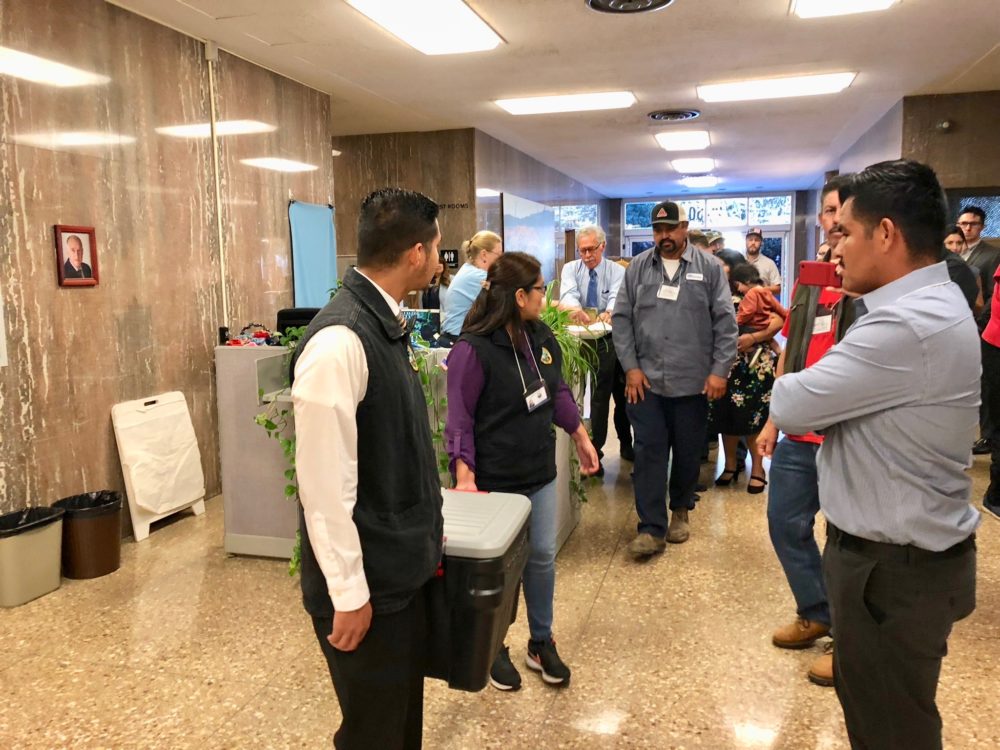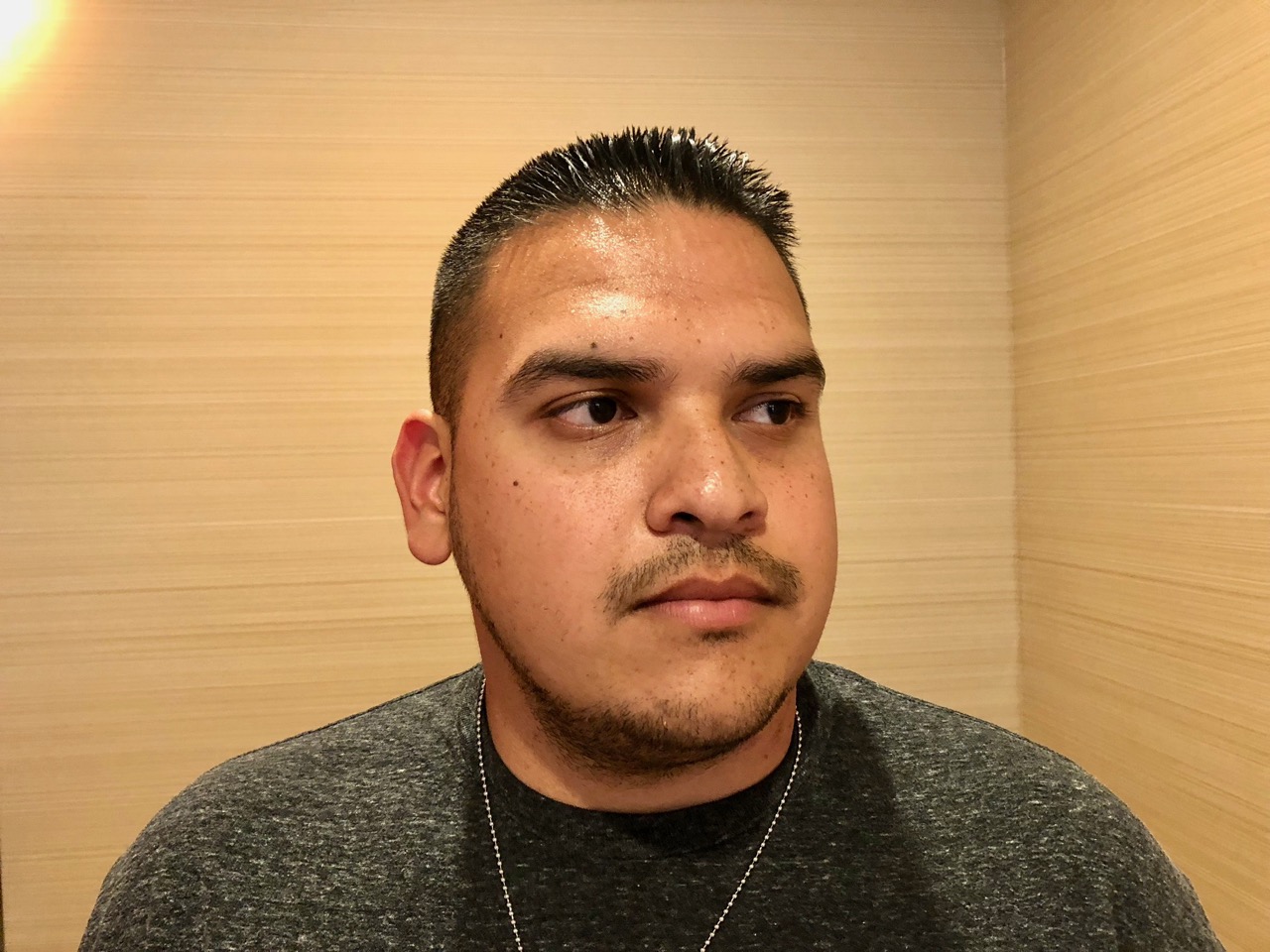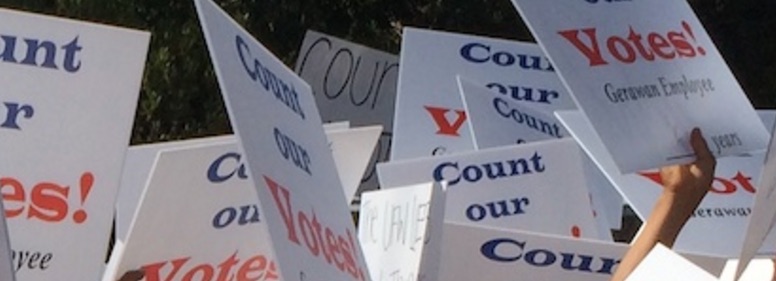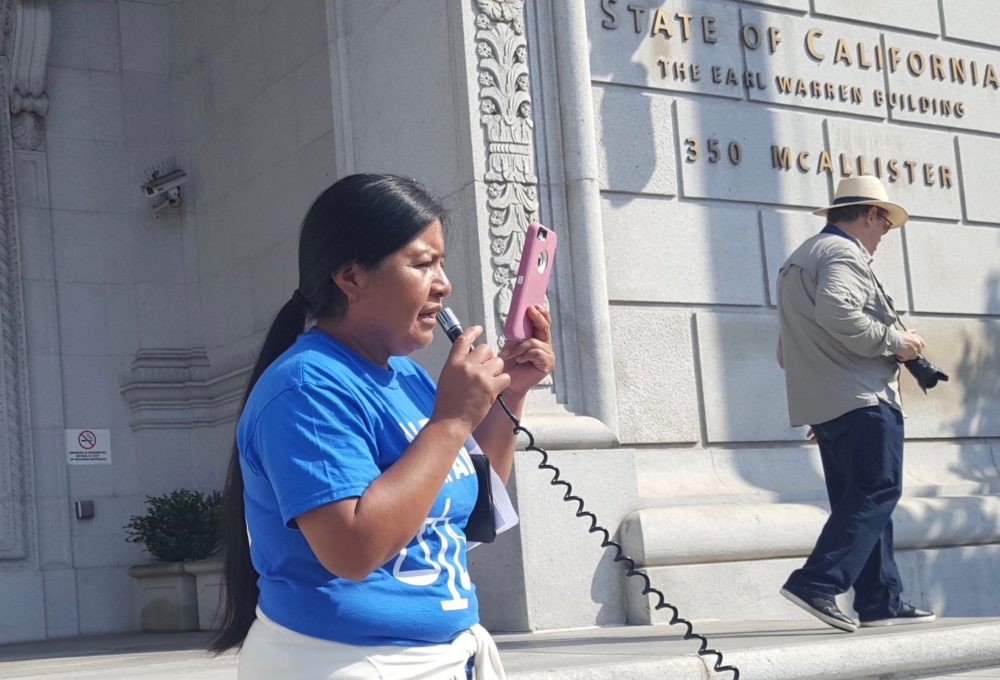ALRB Officially Certifies Gerawan Workers’ “No Union” Vote
“No Union” is Official Result
News Release Edited by Laurie Greene
TODAY, the Agricultural Labor Relations Board (ALRB) officially certified that a majority of the valid ballots from the November 5, 2013, election that were counted five years later in Fresno on September 18 were cast as “No Union.” In addition, the ALRB concluded that “the United Farm Workers of America thereby lost its prior status as the exclusive representative of the employees for the purpose of collective bargaining.”
Silvia Lopez, a Gerawan employee at the time, filed the petition on October 25, 2013, to decertify the UFW as the bargaining representative of the agricultural employees of Gerawan Farming, Inc., which led to the sanctioned decertification election a few weeks later. Today, Lopez commented, “I cannot believe what just happened today. The ALRB certified our votes and results. I am speechless and beyond excited and happy because justice was finally done.”
Said attorney Anthony Raimondo, “This is a great day for farm workers all across the state of California who can finally celebrate the fact that they wll be the ones who decide their future, not a government agency or a politically connected union. The workers will rest easy tonight knowing that their wages belong to them and will not be taken from them by the United Farm Workers union.”
“We are grateful that the ALRB has recognized the undeniable truth of the workers’ will as expressed in the vote,” Raimondo continued, “and relieved that the agency has decided to abandon its alliance with the UFW and work for the rights of California farmworkers rather than the financial health of a failing union.”
Jesse Rojas, spokesperson for Pick Justice, stated, “Pick Justice was started because of the courage, strength and determination of thousands of farmworkers who simply wanted the right to choose and to be treated equally like every other worker in the state and country. We are thankful that the ALRB finally did the right thing after 5 years of suppressing workers’ rights. Today is a historic and huge victory for the Gerawan farmworkers. Pick Justice is just getting started and will continue to advocate for what is right.”
Link: To review the ALRB Certification of the November 2013 Election to Decertify UFW issued TODAY, September 27, 2109, click on 44 ALRB No. 10.


































 California Ag Today: In denying the ballot votes to be counted, the ALRB said it was unfair that the employer—Gerawan in this case—gave the workers a pay raise without permission of the state government or the UFW.
California Ag Today: In denying the ballot votes to be counted, the ALRB said it was unfair that the employer—Gerawan in this case—gave the workers a pay raise without permission of the state government or the UFW.






